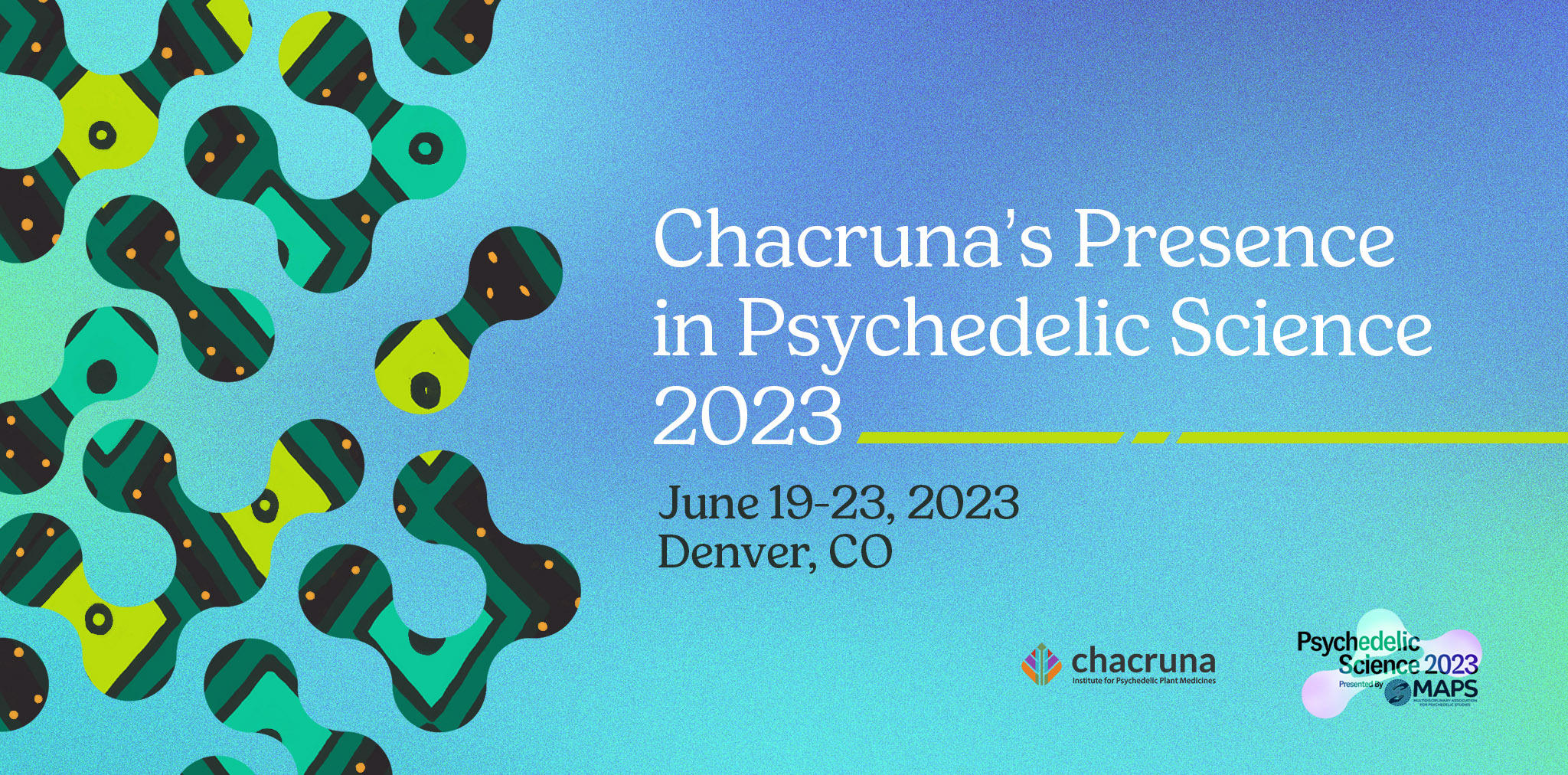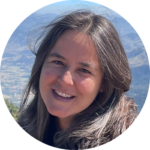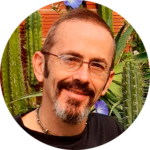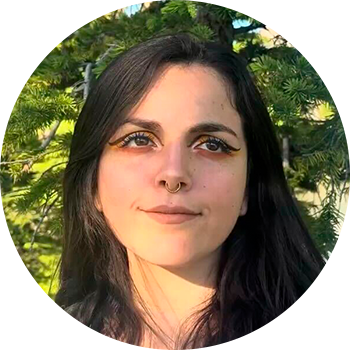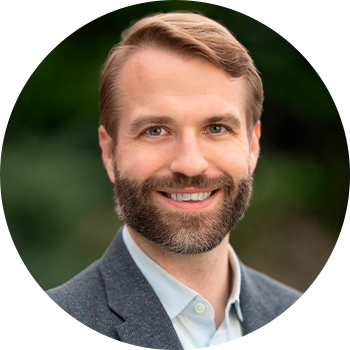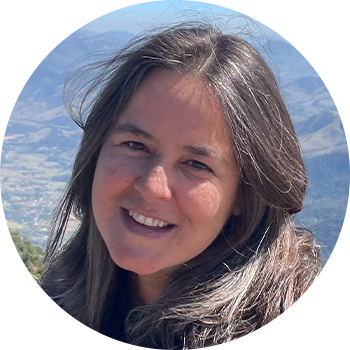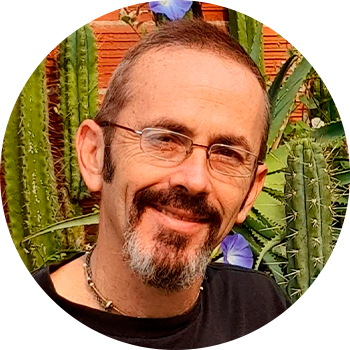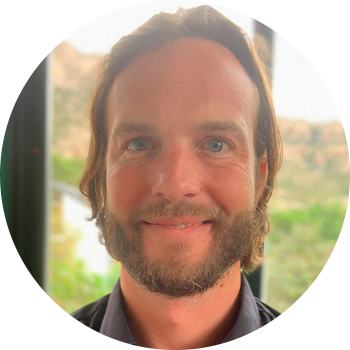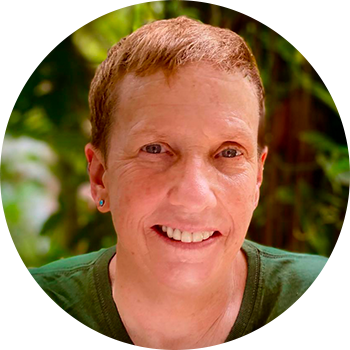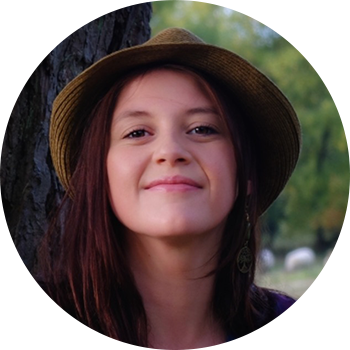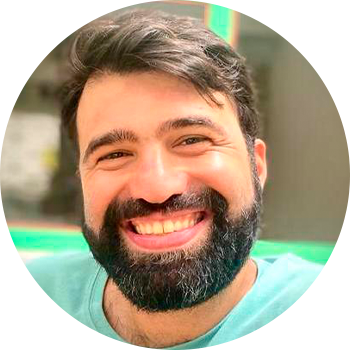- Meet Chacruna at Psychedelic Science 2025 - May 27, 2025
- Psychedelics and Attachment: Fundamentals, Implications, and New Frontiers - May 16, 2025
- Development Outreach Internship (OPEN) - May 6, 2025
Psychedelic Science 2023
June 21-23
Denver, CO
At this year’s Psychedelic Science 2023 conference, Chacruna Institute is proud to offer various activities and spaces for the public to participate in. Chacruna is an official Community Partner for the conference, will host the Ceremony Tent: Sacred Plants, Decolonial Dialogues & Music in the Deep Space, will have a booth in the Exhibit Hall, and will host one full day track at the Plant Medicine stage. Learn about our different participations below.
Chacruna’s Ceremony Tent in Deep Space:
Sacred Plants, Decolonial Dialogues & Music
The Chacruna Institute for Psychedelic Plant Medicines is excited to announce our first experiential tent which will be taking place in Psychedelic Science 2023’s Deep Space. Come join the Chacruna Institute in this tent which will include ceremonial rapé (tobacco snuff) experiences open to the public, a series of educational and decolonial conversations with the team, covering topics such as Huni Kuin plant cultures and traditions, traditional tobacco use, ayahuasca, rapé, shamanism, Indigenous reciprocity and rights, conservation and ecology of various psychedelic plant medicines, and more. There will also be daily Kuara gratitude circles and Brazilian spiritual musical circles open for the public to participate in.
June 21st
June 22nd
June 23rd
Click on the presentation to read the description
Holding Mindful Ceremony: Building Informed Relationships to Indigenous Communities and Sacred Plants
6/21/23 – 10:00 AM – 10:30 AM MT
Bia Labate, Ph.D
I have been drinking and studying ayahuasca for 26 years and also worked in Mexico for 8 years, where I dove into the worlds of peyote and mushroom. Further, I have been an academic researcher and political activist for 33 years. Through this journey, I have witnessed firsthand how psychedelic plant medicines became increasingly popular, and how people from the Global North traveled increasingly to the Global South, with our collective appetite for these experiences growing exponentially. However, there seems to be a kind of obsession with these plant medicines, a romanticization or even fetishization that does not match a wish to truly learn from the Indigenous people that have been using these plants since time immemorial. On the one hand, there seems to be a lack of interest in even getting to know these communities. On the other, there exists a sincere wish to try to do better but a lack of sense of what is the correct thing to do. In this talk, I will share some personal and professional reflections on how to connect with locals in respectful and mindful ways, such as: taking Indigenous claims on plant medicines seriously; learning about their culture and traditions; engaging in collaborative, horizontal and non-transactional relationships; supporting the political movements that these communities are involved, among others. I will further talk about Chacruna’s Indigenous Reciprocity Initiative of the Americas (IRI), which is a reflection of all of these considerations; our contribution to trying to support Indigenous-led initiatives, autonomy, and sovereignty. The talk will conclude by raising some political issues brought up by female Indigenous leader activists, and re-imagining a psychedelic renaissance that is truly co-created together with those who discovered these plant medicines and brought them to us.
Education about Rapé and Traditional Tobacco Use
6/21/23 – 10:30 – 10:45 AM MT
Glauber Loures de Assis, Ph.D
Tobacco is one of the most prevalent, used, respected sacred plants among Indigenous and traditional peoples of the Americas. It can be used in a variety of ways. It can be smoked, and its smoke can be used for protection and healing breaths. It can also be consumed in the form of rapé snuff, among many other ways. Although the use of snuff is spreading rapidly around the world, it is important to remember that this is a traditional medicine, with different ways of preparation, different types of blowing, and different plants that can make up each recipe. In this conversation, we will talk about the traditional uses of tobacco and especially about the diversity of uses and the most appropriate and beneficial ways to use rapé snuff. We will also touch on the topic of the current explosion of rapé circles and “experts” around the West.
Morning Rapé Ceremony
6/21/23 – 10:45-11:30 AM MT
Glauber Loures de Assis, Ph.D
Chacruna is proud to provide a new offering for the psychedelic community, a direct contact with the universe of sacred plants, native people and their traditions that is sometimes overlooked in the global circuit of psychedelic conferences. With the blessings and permission of some of our partners in the Amazon, we bring traditional medicines and crafts to our table to help raise public awareness about the local uses and sociocultural aspects of sacred plants, as well as to honor Indigenous peoples and their traditions. Rapé snuff is a sacred medicine for several native peoples of the Brazilian and Western Amazon, used not only ritually but also on festive and social occasions.
Reciprocity in Action: A Closer Look at our IRI Partners
6/21/23 – 11:30 – 12:00 PM MT
Joseph Mays, MSc, Nicholas Spiers, MA, Horacio Guevara
Join the IRI research team for an in-depth look at the 36 different communities and projects involved in our grassroots network of 20 Indigenous community organizations in seven countries throughout the Americas.
Psychedelic Futures & Sustainability: Chacruna Alliance Supporters in Conversation
6/21/23 – 12:00 – 12:45 PM MT
Join the Chacruna team and allies for an intimate conversation exploring the importance of merging missions to advance a collective vision for the future of psychedelic medicine—rooted in justice, equity, reciprocity, and community. Discover how you can partner with us to advance this mission, and connect with like-minded advocates, donors and other initiatives in the field. This exclusive, invite-only conversation aims to ignite inspiration and forge connections among diverse entities working across multiple disciplines in this field.
Psychedelicizing Intellectual Property: An Anti-Colonial Approach to Intellectual Property in the Psychedelics Market
6/21/23 – 12:45 PM – 1:30 PM MT
Chris R. Byrnes, JD
The use of the intellectual property (IP) system inside the psychedelics market is hotly debated. Critics of the IP system identify the colonial roots of IP, imposed through international trade agreements by countries in the Global North onto countries in the Global South. Numerous examples of biopiracy and the expropriation of Indigenous knowledge by Global North corporations underscore how IP can be used and abused inside the psychedelics market. This talk will critically examine the creation of intellectual property rights (e.g., pa tents, trademarks, copyright) and provide an overview of how intellectual property laws relate to sacred plants and the protection (and lack thereof) of Indigenous rights. Through historical examples, we will address issues surrounding implicit and explicit cultural and epistemological bias that undergird the formalization of intellectual property, especially as it pertains to “authorship,” “inventorship,” and patentable subject matter. The presentation will then pivot to an overview and examination of how IP licensing has and can be used to advance anti-colonial practice, to protect Indigenous rights, and to support alternative economic models such as commoning.
Live Kuara Circle
6/21/23 – 1:30 PM – 2:30 PM MT
Dr. Glauber Loures de Assis
Music, mindfulness and gratitude offers an opportunity to connect with oneself and practice the exercise of interbeing and connection with other human and non-human beings. Through a guided practice of meditation, sharing, and music, Chacruna invites you to take a few minutes out of your week to participate in a community experience of celebration and gratitude for life. The name of our circle is inspired by the notions of Sumak Kawsay and Bien Vivir of Indigenous peoples of South America. Kûara means sun in Tupi, an ancient Indigenous language that until the 19th century was the main language spoken in Brazil. Join us for this collective journey to promote a connection with our ancestral roots and the energy of the sun. Bright and positive, empowering us to have good thoughts and prosperity in our lives and relations.
Huni Kuin Plants Culture and Traditions: A conversation with Yawa Bane
6/21/23 – 2:30 PM – 3:15 PM MT
Traditional Indigenous communities from South America have been using many plant medicines, such as ayahuasca (Nixi Pae), as a medicinal plant since time immemorial. Join this conversation with Yawa Bane to discuss various practices and traditions of the Huni Kuin.
Afternoon Rapé Ceremony
6/21/23 – 3:15 PM – 4:30 PM MT
Leopardo Yawa Bane
Chacruna is proud to provide a new offering for the psychedelic community, a direct contact with the universe of sacred plants, native people and their traditions that is sometimes overlooked in the global circuit of psychedelic conferences. With the blessings and permission of some of our partners in the Amazon, we bring traditional medicines and crafts to our table to help raise public awareness about the local uses and sociocultural aspects of sacred plants, as well as to honor Indigenous peoples and their traditions. Rapé snuff is a sacred medicine for several native peoples of the Brazilian and Western Amazon, used not only ritually but also on festive and social occasions.
Brazilian Spiritual Music Circle
6/21/23 – 4:30 PM – 5:00 PM MT
Glauber Loures de Assis, Ph.D
Brazil is one of the countries with a dynamic, hybrid and flourishing spirituality. Brazilian rites and traditions are immersed in a rich and diverse culture, which combines indigenous, African, European and caboclo (mestizo) rhythms in a unique way. In this circle, we perform spiritual songs of Brazilian origin, especially those related to the Huni Kuin people and to the Brazilian ayahuasca religions.
Psychedelic Futures & Sustainability: Chacruna Alliance Supporters in Conversation
6/21/23 – 5:00 PM – 6:00 PM MT
Join the Chacruna team and allies for an intimate conversation exploring the importance of merging missions to advance a collective vision for the future of psychedelic medicine—rooted in justice, equity, reciprocity, and community. Discover how you can partner with us to advance this mission, and connect with like-minded advocates, donors and other initiatives in the field. This exclusive, invite-only conversation aims to ignite inspiration and forge connections among diverse entities working across multiple disciplines in this field.
Psychedelic Futures & Sustainability: Chacruna Alliance Supporters in Conversation
6/22/23 – 9:00 AM – 9:30 AM MT
Join the Chacruna team and allies for an intimate conversation exploring the importance of merging missions to advance a collective vision for the future of psychedelic medicine—rooted in justice, equity, reciprocity, and community. Discover how you can partner with us to advance this mission, and connect with like-minded advocates, donors and other initiatives in the field. This exclusive, invite-only conversation aims to ignite inspiration and forge connections among diverse entities working across multiple disciplines in this field.
Education about Rapé and Traditional Tobacco Use
6/22/23 – 9:30 AM – 9:45 AM MT
Leopardo Yawa Bane
Tobacco is one of the most prevalent, used, respected sacred plants among Indigenous and traditional peoples of the Americas. It can be used in a variety of ways. It can be smoked, and its smoke can be used for protection and healing breaths. It can also be consumed in the form of rapé snuff, among many other ways. Although the use of snuff is spreading rapidly around the world, it is important to remember that this is a traditional medicine, with different ways of preparation, different types of blowing, and different plants that can make up each recipe. In this conversation, we will talk about the traditional uses of tobacco and especially about the diversity of uses and the most appropriate and beneficial ways to use rapé snuff. We will also touch on the topic of the current explosion of rapé circles and “experts” around the West.
Morning Rapé Ceremony
6/22/23 – 9:45 – 10:30 AM MT
Leopardo Yawa Bane
Chacruna is proud to provide a new offering for the psychedelic community, a direct contact with the universe of sacred plants, native people and their traditions that is sometimes overlooked in the global circuit of psychedelic conferences. With the blessings and permission of some of our partners in the Amazon, we bring traditional medicines and crafts to our table to help raise public awareness about the local uses and sociocultural aspects of sacred plants, as well as to honor Indigenous peoples and their traditions. Rapé snuff is a sacred medicine for several native peoples of the Brazilian and Western Amazon, used not only ritually but also on festive and social occasions.
Live Kuara Circle
6/22/23 – 10:30 AM – 11:30 AM MT
Glauber Loures de Assis, Ph.D
Music, mindfulness and gratitude offers an opportunity to connect with oneself and practice the exercise of interbeing and connection with other human and non-human beings. Through a guided practice of meditation, sharing, and music, Chacruna invites you to take a few minutes out of your week to participate in a community experience of celebration and gratitude for life. The name of our circle is inspired by the notions of Sumak Kawsay and Bien Vivir of Indigenous peoples of South America. Kûara means sun in Tupi, an ancient Indigenous language that until the 19th century was the main language spoken in Brazil. Join us for this collective journey to promote a connection with our ancestral roots and the energy of the sun. Bright and positive, empowering us to have good thoughts and prosperity in our lives and relations.
Brazilian Spiritual Music Circle
6/22/23 – 11:30 AM – 12:00 PM MT
Glauber Loures de Assis, Ph.D
Brazil is one of the countries with a dynamic, hybrid and flourishing spirituality. Brazilian rites and traditions are immersed in a rich and diverse culture, which combines indigenous, African, European and caboclo (mestizo) rhythms in a unique way. In this circle, we perform spiritual songs of Brazilian origin, especially those related to the Huni Kuin people and to the Brazilian ayahuasca religions.
Psychedelic Futures & Sustainability: Chacruna Alliance Supporters in Conversation
6/22/23 – 12:00 PM – 1:00 PM MT
Join the Chacruna team and allies for an intimate conversation exploring the importance of merging missions to advance a collective vision for the future of psychedelic medicine—rooted in justice, equity, reciprocity, and community. Discover how you can partner with us to advance this mission, and connect with like-minded advocates, donors and other initiatives in the field. This exclusive, invite-only conversation aims to ignite inspiration and forge connections among diverse entities working across multiple disciplines in this field.
Medicinas da Floresta: Huni Kuin lessons in Rapé, Kambô and Sananga
6/22/23 – 1:00 PM – 1:30 PM MT
Leopardo Yawa Bane
At the dawn of the third decade of the 21st century, psychedelics are increasingly in the mainstream of Western society. International conferences, scientific research, international philanthropic organizations, urban shamanic networks, and psychonauts are more interested than ever in the therapeutic, artistic, philosophical, and spiritual potentials of sacred plants. In this global panorama of circulation of substances, people, and knowledge, it is important to note that a good part of the sacred plants and animals that move these networks originate in the territories and traditional knowledge of the people of the Amazon forest. Noticing the exchanges, noises, problems of translation, and possibilities arising from this relationship between the forest and the city are important aspects for reflection in order to build the psychedelic renaissance in a way that values traditional knowledge.
Historical and Contemporary Indigenous Rights and Social Justice
6/22/23 – 1:30 PM – 2:15 PM MT
Marlena Robbins
This session will discuss the historical and contemporary perceptions of Indigenous people in the so-called “United States” among the psychedelic movement. Join in as we openly discuss, dissect and debunk misrepresentations of Indigenous people and explore the resilience of Tribal Nations and their members to create healthy socioecological systems within their respective families and communities. We will explore Indigenous rights and social justice through historical and modern dimensions of colonization on Indigenous systems of life. We will discuss how Indigenous peoples strategize and work toward equal access and human
Conservation, Ecology and Natural History of Peyote, Iboga, Sonoran Desert Toad and Ayahuasca Vine
6/22/23 – 2:15 PM – 3:00 PM MT
Anya Ermakova, Ph.D
This presentation will address natural history and urgent conservation issues around four naturally occurring psychedelic plant and animal medicines: peyote, iboga, ayahuasca vine, and Sonoran Desert toad. This is particularly important, as we are living through the psychedelic renaissance, when more and more people are turning to psychedelic medicines for healing, and the political climate is changing with decriminalization. At the same time, these plants and toads are facing threats from climate change, habitat loss, and other anthropogenic pressures, like overharvesting. There is not much reliable information on the conservation of naturally occurring psychedelics. In this lecture, published data about conservation and ecology of sacred medicines will be woven together and critically analyzed so as to raise awareness of the conservation needs of each of these species. Potential solutions or risk mitigation measures will be presented and applied on a case-by-case basis. The importance of supporting Indigenous and local communities in their efforts to protect the land and biodiversity will be emphasized.
Decolonizing Psychedelics and Indigenous Reciprocity: Visionary Plants, Thinking Forests, & Biocultural Conservation
6/22/23 – 3:00 PM – 3:45 PM MT
Joseph Mays, MSc
This talk looks at the use of “reciprocity” in response to the colonial structures of increasingly globalized plant medicine spaces and evaluates Chacruna’s Indigenous Reciprocity Initiative as a new grassroots model that confronts the disempowering dynamics of conventional philanthropy, focusing on community autonomy in a psychedelic ecosystem consisting of diverse ontological frameworks.
Afternoon Rapé Ceremony
6/22/23 – 3:45 PM – 4:30 PM MT
Glauber Loures de Assis, Ph.D
Chacruna is proud to provide a new offering for the psychedelic community, a direct contact with the universe of sacred plants, native people and their traditions that is sometimes overlooked in the global circuit of psychedelic conferences. With the blessings and permission of some of our partners in the Amazon, we bring traditional medicines and crafts to our table to help raise public awareness about the local uses and sociocultural aspects of sacred plants, as well as to honor Indigenous peoples and their traditions. Rapé snuff is a sacred medicine for several native peoples of the Brazilian and Western Amazon, used not only ritually but also on festive and social occasions.
Psychedelic Futures & Sustainability: Chacruna Alliance Supporters in Conversation
6/22/23 – 5:00 PM – 6:00 PM MT
Join the Chacruna team and allies for an intimate conversation exploring the importance of merging missions to advance a collective vision for the future of psychedelic medicine—rooted in justice, equity, reciprocity, and community. Discover how you can partner with us to advance this mission, and connect with like-minded advocates, donors and other initiatives in the field. This exclusive, invite-only conversation aims to ignite inspiration and forge connections among diverse entities working across multiple disciplines in this field.
Psychedelic Futures & Sustainability: Chacruna Alliance Supporters in Conversation
6/23/23 – 9:00 AM – 9:30 AM MT
Join the Chacruna team and allies for an intimate conversation exploring the importance of merging missions to advance a collective vision for the future of psychedelic medicine—rooted in justice, equity, reciprocity, and community. Discover how you can partner with us to advance this mission, and connect with like-minded advocates, donors and other initiatives in the field. This exclusive, invite-only conversation aims to ignite inspiration and forge connections among diverse entities working across multiple disciplines in this field.
Education about Rapé and Traditional Tobacco Use
6/23/23 – 9:30 AM – 9:45 AM MT
Leopardo Yawa Bane
Tobacco is one of the most prevalent, used, respected sacred plants among Indigenous and traditional peoples of the Americas. It can be used in a variety of ways. It can be smoked, and its smoke can be used for protection and healing breaths. It can also be consumed in the form of rapé snuff, among many other ways. Although the use of snuff is spreading rapidly around the world, it is important to remember that this is a traditional medicine, with different ways of preparation, different types of blowing, and different plants that can make up each recipe. In this conversation, we will talk about the traditional uses of tobacco and especially about the diversity of uses and the most appropriate and beneficial ways to use rapé snuff. We will also touch on the topic of the current explosion of rapé circles and “experts” around the West.
Morning Rapé Ceremony
6/23/23 – 9:45 – 10:30 AM MT
Leopardo Yawa Bane
Chacruna is proud to provide a new offering for the psychedelic community, a direct contact with the universe of sacred plants, native people and their traditions that is sometimes overlooked in the global circuit of psychedelic conferences. With the blessings and permission of some of our partners in the Amazon, we bring traditional medicines and crafts to our table to help raise public awareness about the local uses and sociocultural aspects of sacred plants, as well as to honor Indigenous peoples and their traditions. Rapé snuff is a sacred medicine for several native peoples of the Brazilian and Western Amazon, used not only ritually but also on festive and social occasions.
Indigenous Ayahuasca Practices: Traditions of the Huni Kuin people
6/23/23 – 10:30 – 11:30 AM MT
Leopardo Yawa Bane
Ayahuasca for my people brings an opening of knowledge, wisdom, and spirituality in our tradition and culture. Ayahuasca brings our consciousness, our awakening about the forest, about the world of cosmology, geometry, and of the Kene and Boa. Join this conversation to discuss ayahuasca practices and traditions of the Huni Kuin.
Psychedelic Futures & Sustainability: Chacruna Alliance Supporters in Conversation
6/23/23 – 11:30 AM – 12:00 PM MT
Join the Chacruna team and allies for an intimate conversation exploring the importance of merging missions to advance a collective vision for the future of psychedelic medicine—rooted in justice, equity, reciprocity, and community. Discover how you can partner with us to advance this mission, and connect with like-minded advocates, donors and other initiatives in the field. This exclusive, invite-only conversation aims to ignite inspiration and forge connections among diverse entities working across multiple disciplines in this field.
Empowering Young Leaders: The Next Generation of Psychedelics
6/23/23 – 12:00 PM – 1:00 PM MT
Lorien Chavez, Alejandra Barajas, Hena Malik
We invite the public to learn more about our main programs, including: Education; Indigenous Reciprocity; Protection of Sacred Plants and Cultural Traditions; and Psychedelic Justice, so that we can explore the importance of the younger generation’s leadership, our commitment to social justice, and in keeping pace with what is happening in the world. We will give some insights into all that goes on behind the scenes when working on these projects, the importance of social media, how to increase our audience and deal with toxicity online. We will further explore how Chacruna is trying to be an organization that ‘walks the talk’, and engages in strong intergenerational dialogue. We are committed to team building, collective action, drinking sacred plants together, tabling in conferences, being curious and open to different kinds of leaders in the field, and joining our own courses and community forums to keep on developing and flourishing both intellectually and as full humans. Many young people are looking for guidance on how to get involved in the psychedelic field and find the best, equitable, and fitting programs to fit their interests and focus of study. Given that we promote cutting edge content, and have a strong pool of experts, and work in collaboration with many leading organizations and experts in this field, we can provide many valuable resources, as well as answer any questions or concerns they may have. We hope that you can join us in this important conversation and learn more about our challenges as an organization, from fundraising to facilitating conversations on controversial topics as psychedelics go mainstream.
Live Kuara Circle
6/23/23 – 1:00 PM – 1:45 PM MT
Glauber Loures de Assis, Ph.D
Music, mindfulness and gratitude offers an opportunity to connect with oneself and practice the exercise of interbeing and connection with other human and non-human beings. Through a guided practice of meditation, sharing, and music, Chacruna invites you to take a few minutes out of your week to participate in a community experience of celebration and gratitude for life. The name of our circle is inspired by the notions of Sumak Kawsay and Bien Vivir of Indigenous peoples of South America. Kûara means sun in Tupi, an ancient Indigenous language that until the 19th century was the main language spoken in Brazil. Join us for this collective journey to promote a connection with our ancestral roots and the energy of the sun. Bright and positive, empowering us to have good thoughts and prosperity in our lives and relations.
Brazilian Spiritual Music Circle
6/23/23 – 1:45 PM – 2:15 PM MT
Glauber Loures de Assis, Ph.D
Brazil is one of the countries with a dynamic, hybrid and flourishing spirituality. Brazilian rites and traditions are immersed in a rich and diverse culture, which combines indigenous, African, European and caboclo (mestizo) rhythms in a unique way. In this circle, we perform spiritual songs of Brazilian origin, especially those related to the Huni Kuin people and to the Brazilian ayahuasca religions.
Indigenous Reciprocity Initiative Q & A
6/23/23 – 2:15 – 3:30 PM MT
Joseph Mays, MSc, Glauber Assis, PhD., Horacio Guevara, Nidia A. Olvera Hernández, PhD., Karina Alvarez
Participate in a discussion and Q&A session on Plant Medicine and Reciprocity with Chacruna’s team from the US and the Global South for a broader perspective on the decolonial work of our program.
Chacruna’s Council for the Protection of Sacred Plants: Promoting Education, Protection and Advocacy for Sacred Plants and Cultural Traditions
6/23/23 – 3:30 PM – 4:15 PM MT
Martha Hartney, JD, Rob Heffernan
This presentation will offer a balance of the legal, social, and cultural issues of the plant medicine community in the US. We will explore Chacruna’s Council for the Protection of Sacred Plants work on multiple fronts. This includes: promoting legal harm reduction around the use of sacred plants; issuing public warnings about law enforcement tendencies; monitoring the legal developments involving ayahuasca churches religious exemptions requests (such as Soul Quest’s, NAAVC and others); the creation of the Guide to RFRA and Best Practices for Psychedelic Plant Medicine Churches; providing spiritual, emotional, and legal support and resources for folks facing legal encounters with law enforcement; supporting the incubation of the Sacred Plant Alliance (SPA, an association of psychedelic churches focused on self-regulation and accountability); supporting the Church of the Eagle and the Condor fundraising and FOIA requests to the DEA and Customs and Border Protection (including findings that there were 210 ayahuasca seizures in 2020); creating awareness and platforming Native Americans’ voices regarding ayahuasca and peyote regulatory policies and issues around decriminalization, conservation, and cultural appropriation; legal analyses on decriminalization initiatives across the country (such as California, Oregon, Colorado, Connecticut, Texas, and Washington); reflections on “patenting the sacred” and a publication on psychedelic commons guidelines; and supporting the religious and communal use of psilocybin in Oregon under Measure 109. We will conclude by outlining some challenges that remain ahead for the plant medicine community and its advocates. It is hoped that this presentation will help create critical reflections around the medicalization, commodification, and globalization of Indigenous plant medicines.
Afternoon Rapé Ceremony
6/23/23 – 4:15 PM – 5:15 PM MT
Glauber Loures de Assis, Ph.D
Chacruna is proud to provide a new offering for the psychedelic community, a direct contact with the universe of sacred plants, native people and their traditions that is sometimes overlooked in the global circuit of psychedelic conferences. With the blessings and permission of some of our partners in the Amazon, we bring traditional medicines and crafts to our table to help raise public awareness about the local uses and sociocultural aspects of sacred plants, as well as to honor Indigenous peoples and their traditions. Rapé snuff is a sacred medicine for several native peoples of the Brazilian and Western Amazon, used not only ritually but also on festive and social occasions.
Psychedelic Futures & Sustainability: Chacruna Alliance Supporters in Conversation
6/23/23 – 5:15 PM – 6:00 PM MT
Join the Chacruna team and allies for an intimate conversation exploring the importance of merging missions to advance a collective vision for the future of psychedelic medicine—rooted in justice, equity, reciprocity, and community. Discover how you can partner with us to advance this mission, and connect with like-minded advocates, donors and other initiatives in the field. This exclusive, invite-only conversation aims to ignite inspiration and forge connections among diverse entities working across multiple disciplines in this field.
Chacruna’s Track on Plant Medicine Conference Stage
The Chacruna Institute for Psychedelic Plant Medicines will be hosting one full day track at the Plant Medicine stage at Psychedelic Science 2023. These talks will be given by various team members of the Chacruna Institute, covering crucial topics such as: legal protections regarding plant medicines, Indigenous uses of various plant medicines, Indigenous reciprocity, decolonial approaches to spirituality from the Global South, various angles around ayahuasca, queer issues in psychedelic medicine, peyote politics in Mexico, and Indigenous perspectives to globalization of ayahuasca (led by Leopardo Yawa Bane who is Huni Kuin). This will be a full day of dialogues with the Chacruna Institute with an opportunity to ask questions and create a conversation with the public.
Chacruna’s Track
June 23rd, 2023
Click on the presentation to read the description
Moderator: Bia Labate, Ph.D.
Opening address
6/23/23 – 10:15 – 10:30 AM MT
Alejandra Barajas, Lorien Chavez
Why is the work of the Chacruna Institute so crucial now?
The Chacruna Institute will open up the full day of lectures by sharing an overview of its mission, vision and programs. Chacruna promotes a bridge between the world of plant medicines and the emergent field of psychedelic science, between traditional ceremonial use and clinical and therapeutic settings, bringing the knowledge and perspectives of the social sciences to health care professionals and practitioners of psychedelic-assisted therapy. It fosters cultural and political reflections on the field of psychedelic science and facilitates conversations about controversial topics that have been simmering on the sidelines as psychedelics go mainstream. This short presentation will offer an overview of the day, Chacruna’s Ceremony Tent: Sacred Plants, Decolonial Dialogues & Music, and why these topics matter so much now. (edited)
Sacred Plant Alliance: The Mission and Vision of a Self-Regulating Association of Psychedelic Churches
6/23/23 – 10:30 – 11:15 AM MT
Allison Hoots, Esq, Bob Otis, MDiv, Robert Heffernan, Esq.
Since 2019, the Sacred Plant Alliance (SPA) has grown as a self-regulating organization and professional association of religious and spiritual practitioners dedicated to the ad vancement of the ceremonial use of psychedelic sacraments within the United States. Its mission is to facilitate the collaboration of spiritual communities across the United States in developing and upholding best standards of practice with these sacred medicines, and in ad vancing legal protections under the Religious Freedom Restoration Act (RFRA). SPA was originally incubated by Chacruna and, in many ways, has grown out of Chacruna’s efforts in community organizing and education around best practices. In this panel, representatives from SPA will discuss SPA’s vision as an alliance of churches invested in mutual support, accountability, and strengthening self-regulation in the larger plant medicine community.
Mazatec Sacred Mushrooms & Psychedelic Capitalism
6/23/23 – 12:00 – 12:15 PM MT
Nicholas Spiers, MA
This presentation will compare and contrast conceptions of psilocybin mushrooms found in the research, cultures and burgeoning industries of the Global North, with those common to people in the Mazatec region of Southern Mexico, where this knowledge first arose. Despite this historical lineage, what sacred mushrooms are for many Mazatec people; what they’re called upon to do; and the worlds and world views underlying their power, often exist in opposition to the ways psilocybin proliferates in the capitalist dynamics of psychedelic industry. This talk will examine the ways the commercialization of the sacred is affecting Indigenous communities and Mazatec shamanism, and explore possible ways to redress the continuing legacies of colonialism and betrayal underpinning the psychedelic renaissance.Today
Plant Medicine and Reciprocity
6/23/23 – 12:15 – 1:00 PM MT
Marlena Robbins, DrPH Student, Joseph Mays, MSc
This talk will look at the use of “reciprocity” in response to the colonial structures of increasingly globalized plant medicine spaces. We will address issues surrounding disparate participation in the so-called “psychedelic renaissance” between communities in the Global North (GN) and Global South (GS), focusing on Indigenous peoples’ status in a psychedelic ecosystem consisting of diverse stakeholders with different ontological frameworks. The workshop will analyze political, economic, ecological, and cultural relationships to gain a better understanding of what reciprocity means in the current context, taking a biocultural approach in the pursuit of effective advocacy and education. Partnerships between investors in the GN and GS communities often function to recreate and reinforce exploitative dynamics; we will discuss the causes and implications of impoverished economic settings where cultural resources are commodified, considering the inherent limitations of capitalist market-based models for access and benefit sharing agreements, whether non profit, corporate, or non-governmental organizations. As psychedelic science grapples with the relational world of diverse beings Indigenous plant medicine refers to, we engage in a modest and mindful exercise to re-think and explore the possibilities of decolonization in the psychedelic space. With this insight, we will begin moving away from cynicism and helplessness towards embodying reciprocity in all our work.
Comparative Conspirituality: A Decolonial Approach From the Global South
6/23/23 – 2:30 – 3:00 PM MT
Glauber Loures de Assis, Ph.D.
If you take a quick stroll through forums discussing spirituality on social media, you will come across “quantum trainers” and “holistic therapists” who warn of grand conspiracies that keep you asleep while offering you an awakening to reality. A flurry of virtual gurus sound the alarm about the Great Reset, the New World Order, the creation of viruses in laboratories, and the danger of 5G technology, while pointing the way out via reconnection with nature and spirituality, through strengthening “natural immunity,” tantra, sphincter sunbathing, psychedelics, and rituals from the far corners of the globe. The amalgamation of spiritualist practices with anti-scientific and extreme right-wing worldviews was defined by the term “conspirituality,” coined and discussed by authors from the Global North, and representing a very particular form of overlap of political cynicism and spiritual optimism. Although Eurocentric, the phenomenon of conspirituality also exists in Latin America. However, in these countries, it presents itself mainly as a phenomenon imported from the white West. This presentation will reflect on this phenomenon from a decolonial perspective, coming from the Global South. It will try to identify the historical origins of conspirituality, the reasons why it has emerged today as a relevant actor in the Western psychedelic landscape, the differences and connections of its manifestation in the Global North and South, its relation to cultural appropriation and to the contemporary New Age market, and the role of internet social networks in the emergence and boosting of the phenomenon
Potentialities and Challenges of Ayahuasca in the Psychedelic Renaissance
6/23/23 – 3:00 – 3:30 PM MT
Henrique Antunes, Ph.D.
As ayahuasca goes mainstream, many dilemmas emerge, such as sexual abuse by some ayahuasqueros, the commodification of sacred plants, the sanitization of traditional practices, and the local impacts of ayahuasca tourism. Conversely, there are also legitimate claims, such as the Indigenous reciprocity initiative, the need for decolonial philanthropy, and the importance of religious freedom for ayahuasca. In light of this, this presentation will draw attention to ayahuasca’s history and sociocultural aspects and the importance of promoting critical thinking, cultural understanding, and legitimacy around the topic of sacred plants and cultural traditions. The goal is to present some of the main current perspectives on research, the recent controversies on the public debate, and more importantly, the challenges that Indigenous peoples, traditional populations, and religious groups face in the world ayahuasca diaspora.
Queering Psychedelics
6/23/23 – 3:45 – 4:45 PM MT
Clancy Cavnar, Psy.D, Alex Belser, Ph.D, Justin Natoli, JD, LMFT
Queer Aspects of Psychedelic Experience
Clancy Cavnar, PsyD
This presentation will explore the dimension of gender-diverse people and sexual orientation in the context of psychedelics. Historically, psychedelics have been used by LGBTQA+ communities as a tool for self-therapy and a creative source among cultural outcastes. We will look at how queer people have used psychedelics to build community and explore identity. This presentation will also examine a dark period when psychedelics were used to treat homosexuality (“conversion therapy”) in clinics internationally, sometimes in aversive therapy scenarios. We will look at the ways psychedelic therapy can be made more accessible to gender- and sexually-diverse people, and the ways that queer people might be accommodated and treated with more understanding. The presentation will familiarize attendees with the particular needs of the queer population in regard to treatment, their continuing struggle to have aspects of gender and orientation respected in clinical contexts with psychedelics, the continuing need for research on this population, and the ways psychedelics can help resolve some of the trauma of being queer in a homophobic society.
From “Shock Therapy” to Affirmative Therapy in Psychedelic Medicine: Concrete Suggestions to Advance Clinical Work with Gender and Sexual Minority People
Alex Belser, PhD
The psychedelic research community is well aware of the abusive psychedelic practices perpetrated by MKUltra, but it remains largely ignorant of how psychedelics were used as a form of “shock therapy” or conversion therapy for gender and sexual minority people. There was widespread documented use of these now illegal procedures in the United States, Canada, France, and the United Kingdom. In this presentation, the past, present, and future of psychedelic medicine’s interactions with the LGBTQIA+ communities will be traced. To address the violence of the past, we will describe the theoretical and clinical approach to psychedelic conversion therapy as a practice of abuse. In the present, we summarize heter onormative practices in psychedelic research practices, including the dominance of male female therapy dyads, non-affirming gender practices regarding pronouns and preferred names, non-diverse patient recruitment, and non-reporting of research outcomes for LGBTQIA+ patients. Pointing toward the future, we provide a specific set of recommenda tions for the years to come, including the development of best practices for working with LGBTQIA+ patients; how to treat sexual minority stress with LGBTQIA+ affirmative psy chedelic therapies; how to uniformly assess gender and sexual identity using a proposed standard questionnaire to be used across clinical trials; and finally, how to treat crystal meth addiction using psychedelic harm reduction among men who have sex with men. We offer a critique of unethical practices and suggest ways the psychedelic research and clinical communities can work to dismantle heteronormative, transphobic, and homophobic forms of oppression in their praxis.
How Psychedelics Can Help Guide the Transformative Journey of Polyamory
Justin Natoli, JD, LMFT
Institutions of power put monogamy on a pedestal in the post-industrial world. The result is a queering of other healthy forms of relationship that limits the love we share as a human family. This presentation will help balance the scales by reclaiming polyamory’s sacred potential. We will reframe polyamory as a journey to remove the barriers inside us that limit our capacity to give and receive all manifestations of love. Removing these barriers is easier said than done. Through interviews and my own clinical observations as a psychotherapist, we will explore the three primary struggles along the polyamorous journey: overcoming shame, healing attachment trauma, and expanding beyond labels. We will also discuss how psychedelics can help guide us through those struggles so we can increase the love available in our lives regardless of how many sex partners we choose.
Peyote History and Politics in Mexico
6/23/23 – 5:00 – 5:15 PM MT
Nidia A. Olvera Hernández, Ph.D.
This presentation focuses on the uses, conceptions and policies of the plant Lophophora williamsii in México from a historical and anthropological perspective. We will move through the first prohibition of peyote in the Americas from 1620–in which the religious practices and rituals of the Indigenous population began to be considered as superstitions and associated with the demonic by the Inquisition–continuing with the mention of the first literary, traveler and anthropological writings that were interested in this psychoactive cactus. We will explore scientific studies produced in Mexico during the 19th and 20th centuries on peyote and its relationship with the history of peyote in other latitudes, in order to make visible the psychedelic studies of the historical knowledge that have been produced from the Global South. There will also be an analysis of the more recent anthropological representations on the ritual, legal, medicinal and religious practices of the Indigenous populations with this cactus. The presentation will conclude with a reflection about the current controversies surrounding including the legal status of peyote in Mexico, its prohibited status at the federal level and risk of extinction, which has led to resistance to the possibility of its regulation and conservation.
Dismantling the Myth of “Mother Ayahuasca”
6/23/23 – 5:15 – 5:30 PM MT
Emily Sinclair, Ph.D.
Within Western circles the spirit of ayahuasca is referred to as “Mother Ayahuasca”, usually considered the benevolent healing spirit of the vine. Yet, this characterization of ayahuasca is a relatively recent phenomenon that has occurred through the commodification of ayahuasca as a purely healing substance and entity for the Western audience. Evidence from long-term research in Iquitos, Peru, the global epicenter of the commercial ayahuasca industry reveals that encounters with ‘Mother Ayahuasca’ within ceremonial spaces are rare. Perceptions of ayahuasca as a benevolent mother spirit are shaped and reinforced through socialization within touristic retreat settings and wider community contexts. The popularity of the figure of ‘Mother Ayahuasca’ among the western audience is associated with their spiritual, healing and ecological concerns including anti-religious tendencies and a widespread preference for earth based spiritual practice involving reverence for ‘Mother Earth’ and the ‘Divine Feminine’. The eco feminist and spiritual and counterculture movement ten to glorify “Mother Ayahuasca” and the feminine as a reaction against patriarchy. Yet, ayahuasqueros and apprentices largely view the ayahuasca spirit as capable of manifesting in male or female form, and furthermore, as being a shamanic ally within brujería (sorcery/witchcraft). As part of curandismo (healing) practices traditionally and to the present day, ayahuasca use involves contact with ‘dark’ and ‘light’. Yet the division between ‘dark’ and ‘light’ or brujería and medicina is not gendered within Amazonian ayahuasca shamanism. This presentation invites us to re-think our gender divisions and stereotypes and learn Amazonian perspectives that point to a more nuanced approach where male and female, and ‘dark’ and ‘light’ are dynamic, shifting dualities.
A Huni Kuin perspective on the Globalization of Ayahuasca
6/23/23 – 5:30 – 6:00 PM MT
Leopardo Yawa Bane
I am a representative of the Huni Kuin Indigenous people in the state of Acre. Traditional Brazilian communities have been using ayahuasca (Nixi Pae) as a medicinal plant for thousands of years. Since the creation myths, my people have been using ayahuasca that was received by the creator, Yuxibu. Today, the Huni Kuin continue to hold ceremonies with the sacred. Ayahuasca for my people brings an opening of knowledge, wisdom, and spirituality in our tradition and culture. Ayahuasca brings our consciousness, our awakening about the forest, about the world of cosmology, geometry, and of the Kene and Boa. This path we follow was taught by our grandfathers. The nature of Indigenous peoples is linked to mother earth, the forest, the animals, the creation between heaven and earth, the spirits and spirit world, and to the whole cosmology. Indigenous peoples were the first to use ayahuasca for spiritual purposes, for healing and connections to the forest and nature. However, it has been expanding outside of their villages. Among Indigenous and non-Indigenous people, there has been increasing interest in the culture, customs, and use of ayahuasca. More Indigenous people are traveling around the world, especially in Europe, where they teach about their culture, perform shamanic practices, and expand the use of ayahuasca to the West. A lot of shamanic groups, healers, and shamans have also appeared expanding this use of ayahuasca in the metropolis of big cities. There have been non-Indigenous people going to the villages and bringing Indigenous knowledge to cities in the form of shamanism or holistic and alternative therapies. I myself have been traveling the world for several years and feel privileged by the experiences I have had, which until recently would have been impossible. While expansion of ayahuasca and Indigenous culture is something that I support, there are still many concerns. My main worry is that my people and our culture will be forgotten as more Westerners are introduced to ayahuasca in foreign contexts, and that its original meaning and guardians may be lost. I believe that the problem with ayahuasca is a human rights issue. As an Indigenous representative from the Amazon forest, I want to present my views on the ongoing globalization of ayahuasca and how we might move forward together on this issue. This is all especially relevant after Bolsonaro’s administration which negatively impacted Indigenous peoples, reaffirming a colonial mindset that sees the Amazon forest as a resource to be explored. Indigenous peoples are aware and want a say in the politics of reform. In the case of ayahuasca, this is the main agenda in the discussion of the current drug policy reform.
Chacruna’s Workshop Best Practices for Legally Protecting Sincere Psychedelic Medicine Churches
This workshop will give clarity and guidance on how psychedelic churches may navigate the risks of and right to religious exercise with psychedelic sacrament by implementing best practices in response to shifts in the psychedelic landscape and applicable law, and how such shifts may impact the legal analysis of the right to the religious use of sacrament(s). The workshop is presented through the lens of Chacruna’s Guide to RFRA and Best Practices for Psychedelic Plant Medicine Churches.
Queering Psychedelics and Psychedelic Justice Book Signing
Synergetic Press will be hosting a book signing which will include two Chacruna books Queering Psychedelics: From Oppression to Liberation in Psychedelic Medicine (editors: Bia Labate, Clancy Cavnar, and Alex Belser) and Psychedelic Justice: Towards a Diverse and Equitable Psychedelic Future (editors: Bia Labate and Clancy Cavnar) . This book signing will be taking place on Thursday, June 21st from 5-6pm MT. All signings will take place in the Registration area outside the entrance and the signing schedule is subject to change.
Chacruna launches new Indigenous Reciprocity Initiative (IRI) instagram account:
Follow the work of our partners
Chacruna will launching in PS2023 the official social media for the Indigenous Reciprocity Initiative of the Americas (IRI). Follow and share @indigenous.reciprocity if you want to support a grassroots network of Indigenous community organizations fighting for land, water, food, medicine and culture. This page will be a place to share messages from our Indigenous partners, updates on the progress of their projects, and high quality collaborative films co-produced in the field. Stay in tune with IRI and contribute to establishing a process of building autonomy, decolonization and reciprocity.
Additional Talks by Chacruna Team Members at PS2023
Various core team members of Chacruna will also speak at some panels outside of the main Chacruna offerings listed above. These include a panel called Islam and Psychedelics with Hena Malik, another panel called Considering psychedelic therapy for adolescents with Dr. Glauber Loures de Assis, and many others by folks in the Chacruna network.
Chacruna as Community Partner
Chacruna Institute for Psychedelic Plant Medicines is proud to be an official Community Partner for PS2023. Please be sure to visit our booth, which is #455, at the Exhibit Hall where you can learn about our programs: Education; Indigenous Reciprocity; Protection of Sacred Plants and Cultural Traditions; and Psychedelic Justice. You can also learn more about our various resources, including our trilogy of books Psychedelic Justice, Uncovering Women’s Voices (in press), and Queering Psychedelics, our Ayahuasca Community Guide for the Awareness of Sexual Abuse, the Guide to RFRA and Best Practices for Psychedelic Plant Medicine Churches, and more. We are thrilled to provide a space for the community to learn about topics that are often overlooked in the psychedelic space, and promote education focusing on honoring and supporting Indigenous communities, supporting biocultural conservation, and social justice efforts for marginalized communities.
Speakers
Take a minute to browse our stock:
Did you enjoy reading this article?
Please support Chacruna's work by donating to us. We are an independent organization and we offer free education and advocacy for psychedelic plant medicines. We are a team of dedicated volunteers!
Can you help Chacruna advance cultural understanding around these substances?


